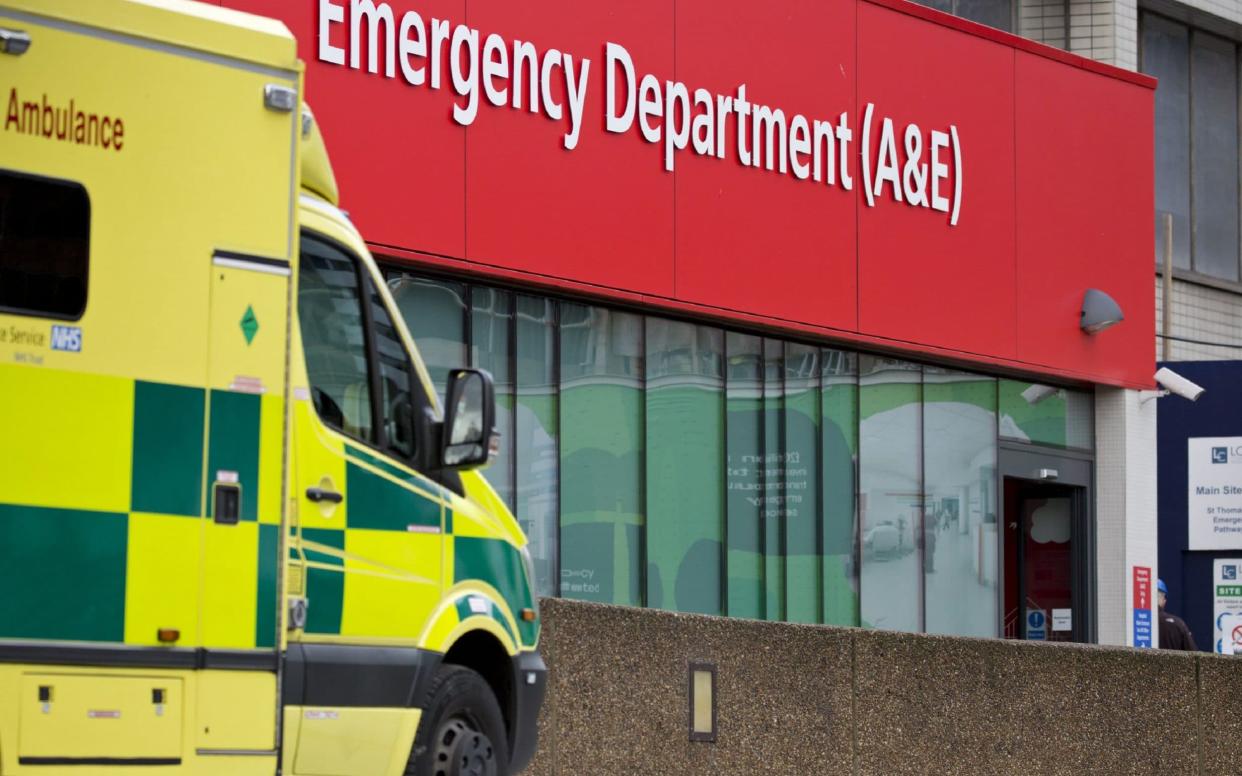Record July temperatures prompt A&E chaos with tens of thousands languishing on trolleys

Hottest ever July temperatures prompted chaos in hospitals, with record numbers attending A&E and languishing on trolley’s, new figures reveal.
Waiting times deteriorated as doctors and nurses battled to cope with the influx, often in “ageing” buildings not designed to keep cool.
More than 2,266,900 patients went to A&E in July, the month Britain experienced its hottest temperature on record - 38.7C.
The tally, the highest for any month yet recorded, was up four per cent on the same month in 2018.
It coincided with a fall in the proportion of patients seen within the four-hour target of three percent on the previous year.
This led to 57,659 people waiting for more than four hours on trolleys, a 35 per cent increase on the number in 2018 and the worst for July since records for this measure began.
Hot weather poses a host of health risks, particularly for the elderly and those with heart or breathing problems.
Across the globe, July was the warmest month in history, according to satellite data.
The new NHS figures follow warnings from medical leaders that the length and severity of heatwaves in the UK is becoming a “seasonal crisis” to match the pressures imposed by winter.
Nigel Edwards, chief executive of the Nuffield Trust think tank, said:
“The soaring temperatures in July have taken their toll on patients and staff, with a record number of people turning up to A&E last month.
“The number of people waiting over 4 hours on trolleys to be admitted was also unusually high for summer at over 57,000 – a figure that would have once been unthinkable, even in the depths of winter.
“And it’s not just about A&E – sadly these figures show relentless pressure throughout the whole system.”
More than one in 10 patients on the list to see a consultant are now waiting more than 18 weeks, the worst level since January.
In June this amounted to more than 600,000 people.
Meanwhile the two-month cancer treatment target has not been met for three and a half years.

According to the Royal College of Surgeons (RCS), there were 36,971 patients waiting more than nine months for an operation in June.
The body also said that 19,969 operations were cancelled at the last minute in April, May and June this year
It follows months of warnings that controversial tax rules on pensions have pushed up waiting lists by penalising higher-paid doctors from working overtime.
The Treasury announced this week it would review the framework.
Professor Derek Alderson, RCS president, said: “The number of patients languishing on waiting lists remains at an utterly unacceptable level.
“Although the Government has made welcome moves this week to reduce waiting times, by directing more money to hospital infrastructure projects and trying to resolve the pensions issue that has been exacerbating waiting times, there is still a big job ahead.”
The 95 per cent four-hour A&E target - which ministers have publicly speculated scrapping - has now not been met since July 2015.
In July, the Society of Acute Medicine, which represents A&E doctors, warned that staff were increasingly practising in “ageing buildings which are designed primarily to keep the heat in”.
Under Boris Johnson’s new plans for the NHS, £850 million will go towards upgrades at 20 hospitals.
A spokesman for NHS England said:
“A&E doctors, nurses, paramedics and other staff have pulled out all the stops to deal with the record heat and record number of attendees over July, treating the highest number of patients ever within four hours - and on average 2,300 more people a day within four hours than in June.
“At the same time, a record number of people have benefited from fast cancer checks or treatment for psychosis and eating disorders over the last three months, while millions more people have benefited from routine tests and treatments over the last year."

 Yahoo News
Yahoo News 
